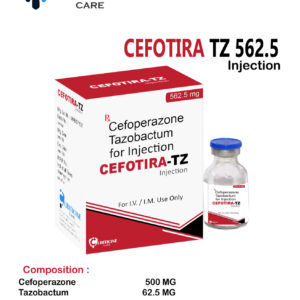- Plot No 351, Industrial Area Phase 2, Panchkula, Haryana
- Mail us - contact@criticinecare.com
- Call us at - 8264040991
- Home
- Critical Care Products | Injection | Range
- Ceftazidime Injection
Ceftazidime Injection
Crizidime 1GM
Crizidime 1GM is the fusion of Ceftazidime Injection which is a kind of medicine linked with the antibiotic class of medication and it is used to treat various bacterial infections. This medication belongs to the class of cephalosporin antibiotics and works by inhibiting the growth and multiplication of bacteria. It is commonly used to treat infections in the respiratory tract, urinary tract, skin, and soft tissues. Ceftazidime injection can also be used to treat serious infections such as sepsis, meningitis, and pneumonia.
One of the advantages of using ceftazidime injection is that it is effective against a wide range of bacteria, including those that are resistant to other types of antibiotics. This medication is also well-tolerated by most patients, and side effects are generally mild and temporary.
Ceftazidime injection works by interfering with the formation of the bacterial cell wall, which is an essential component of bacteria that provides structural support and protection. It belongs to the class of cephalosporin antibiotics, which are bactericidal and kill bacteria by binding to specific proteins called penicillin-binding proteins (PBPs) that are responsible for building the cell wall.
When ceftazidime binds to PBPs, it disrupts the synthesis of peptidoglycan, a major component of the bacterial cell wall, leading to the weakening and eventual lysis of the bacterial cell. This mechanism of action is highly selective to bacteria and does not affect human cells, making ceftazidime a highly effective and safe treatment for bacterial infections.
Uses of Ceftazidime Injection
The working of Ceftazidime medications is very well tolerated in almost all individuals, have a look at the uses of Ceftazidime Injection.
- It is an antibiotic medication that is used to treat bacterial infections caused by some kind of susceptible organisms.
- It is commonly used to treat lower respiratory tract infections, skin and skin structure infections, urinary tract infections, intra-abdominal infections, and sepsis.
- Ceftazidime Injection is often used in hospital settings, particularly in critical care and intensive care units.
Possible Side Effects
The usage of Ceftazidime Injection may cause some kind of basic side effects in some individuals that might take some time to go away. Have a look at those:
- Nausea and vomiting
- Diarrhea
- Headache
- Rash or itching
- Fever
Directions For Use
- It is administered by a healthcare provider in a hospital or clinic setting.
- It is usually given intravenously (through a vein) over a period of 30 minutes to 2 hours, depending on the dose.
- The dosage and duration of treatment will be determined by your healthcare provider based on your medical condition, response to treatment, and other factors.
- It is important to follow the schedule of injections as recommended by your healthcare provider.
- Do not stop or change the dosage of this medication without consulting your healthcare provider.
- Inform your healthcare provider if you experience any side effects or have any concerns about the medication.
- Store the medication at room temperature and protect it from light.
- Do not use the medication if it appears cloudy, discolored, or contains particles.
- Discard any unused medication properly according to your healthcare provider’s instructions.
Safety Precautions
- Ceftazidime Injection should not be used to treat viral infections or infections caused by non-bacterial organisms.
- It is important to inform the healthcare professional of any allergies or adverse reactions to medications before using Ceftazidime Injection.
- Ceftazidime Injection should be used with caution in patients who have a history of allergies or hypersensitivity reactions to cephalosporin antibiotics or penicillins, as they may be at an increased risk of developing an allergic reaction to this medication.
- The medication should be used with caution in patients with kidney or liver disease, as these conditions can affect the way the medication is metabolized and eliminated from the body.
- It should not be mixed with other medications or solutions in the same intravenous line, as this can cause incompatibility and potentially harmful effects.
- The medication may cause diarrhea, which can be a sign of a serious infection. If diarrhea occurs while taking Ceftazidime Injection, it is important to inform the healthcare provider immediately.
- Patients who are taking warfarin or other blood thinners should inform their healthcare provider before starting Ceftazidime Injection, as the medication can interact with these drugs and increase the risk of bleeding.
- This injection may cause a decrease in white blood cell count, which can increase the risk of infection. Regular blood tests may be required to monitor for this potential side effect.
- Patients who are pregnant or breastfeeding should inform their healthcare provider before taking Ceftazidime Injection, as the medication may pose a risk to the developing fetus or infant.
- The medication should be stored at room temperature and protected from light, and unused portions should be discarded properly according to the manufacturer’s instructions.
- It is important to complete the full course of treatment as prescribed by the healthcare provider, even if symptoms improve before the medication is finished.
Frequently Asked Questions (FAQ)
1 How Does Ceftazidime Works?
This injection contains Ceftazidime as its active ingredient. It damages the bacterial cell wall, which is essential for bacterial survival, and as a result, kills bacteria.
2 Is Ceftazidime Injection Used To Treat Meningitis?
Ceftazidime Injection can be used to treat meningitis caused by bacterial infection. It is an antibiotic that kills bacteria and prevents the spread of infection.
3 Does Ceftazidime Cause Diarrhea?
While diarrhea is a common side effect of Ceftazidime, if it persists, worsens, or if you notice blood or mucus in your stools, you should stop taking it immediately and consult a doctor.
4 Can I Take Ceftazidime Injection With Furosemide Medicine?
Co-administration of this medicine and furosemide is not recommended as it may increase the risk of kidney problems, especially in patients with kidney impairment and when given in high doses. However, before taking it with other medicines, please consult your doctor.
5 Can Someone Stop Taking Ceftazidime On Thier Own?
Do not stop taking this medicine without consulting your doctor as it may worsen the infection or cause recurring symptoms. Therefore, take it for the duration prescribed by your doctor. If you experience any difficulty while taking it, consult your doctor immediately.
| Brand Name | Crizidime 1GM |
|---|---|
| MRP | ₹226.77 |
| Composition | Ceftazidime 1GM |
| Packing | 10ML Vial+WFI |










